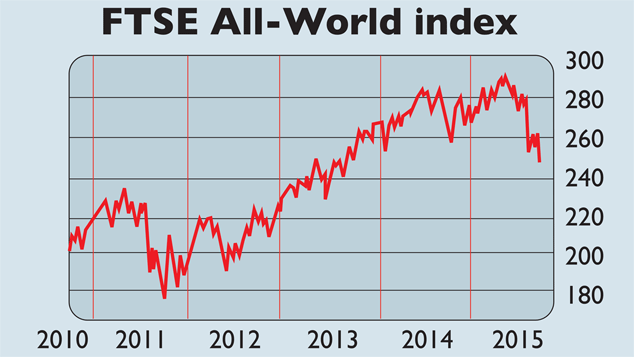
It’s been another nerve-wracking week for the markets. The FTSE All-World index, which tracks both emerging and developed stockmarkets, has slid to a two-year low following its worst third-quarter showing since 2011. America’s S&P has lost around 9% in the past three months; the FTSE Emerging index 21%.
The news of an 8.8% annual drop in Chinese industrial company profits in August, the worst since records began in 2011, unnerved investors and hit commodities too. In Europe, the ongoing VW saga and a renewed descent into deflation – eurozone prices declined by an annual 0.1% in September – soured the mood.
What the commentators said
Part of the story in recent days has been the “unsettling effect of the Fed’s prevarication”, said the FT. The US central bank refrained from raising interest rates from near-zero levels and made it clear it was keeping an eye on volatile markets and developments abroad, notably in China. “Told to worry about the news, markets duly did.” By admitting that it is “being steered by events in China”, said James Saft on Reuters.com, it undermined its own reputation for being able to steer market sentiment.
In the meantime, things are getting worse, said Economist.com’s Buttonwood blog. “When a canary stops singing, it is worth a sidelong glance. When whole flocks of birds keel over, it is time to be alarmed.” China has deteriorated and the commodities slump in equity markets has spread to other sectors. Corporate bond spreads are rising again, reflecting a growing fear of defaults.
“Another sign of market distress” is that inflation expectations for 2020-2025 have fallen. The worry, said Didier Saint George of Carmignac, is that markets are “entering a new era of increased instability, and growing fear of deflationary pressures”.